Drill bits are generally designed to be universal and can fit most drills, but there are specific factors that determine compatibility. Here's a detailed look at what you need to consider to ensure your drill bits fit your drill:
Key Factors for Compatibility
1.Shank Size:
Standard Shank Sizes: Drill bits come in common shank sizes such as 1/4-inch, 3/8-inch, and 1/2-inch. Ensure that the shank size of the drill bit matches the chuck size of your drill.
Hex Shanks: Some drill bits have hexagonal shanks, which are designed for quick-change chucks or impact drivers. These are not compatible with standard round shank chucks.
2.Chuck Type:
Keyless Chucks: Most modern drills come with keyless chucks, which allow for easy bit changes without additional tools. These chucks can accommodate a wide range of standard shank sizes.
Keyed Chucks: Some older drills have keyed chucks that require a chuck key to tighten or loosen the bit. These chucks can be less convenient but offer a more secure grip.
3.Material Compatibility:
Drill bits are designed for specific materials (e.g., wood, metal, masonry). Ensure that the bit material (such as high-speed steel (HSS), cobalt, or carbide) is suitable for the material you are drilling.
Specialized Bits
Masonry Bits: Designed for drilling into concrete, brick, and stone. These bits require a hammer drill or rotary hammer drill for optimal performance.
Tile Bits: Designed for drilling into ceramic tiles and glass. These bits often have diamond tips.
Wood Bits: Brad point bits and spade bits are specifically designed for woodworking, providing clean and precise holes.
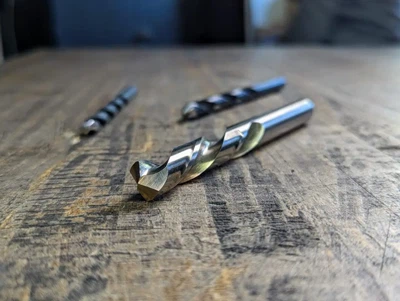
Brand Differences
While most drill bits are universal, some brands may offer specialized bits with unique features or coatings. These bits are still generally interchangeable but may offer better performance with the brand's specific drills.
Tips for Ensuring Compatibility
Check Shank Size: Always check the shank size of the drill bit to ensure it matches the chuck size of your drill.
Inspect Chuck Compatibility: Ensure the chuck type (keyless or keyed) matches the drill bit shank.
Material Consideration: Choose drill bits made from materials suitable for the material you are drilling (e.g., HSS for wood and metal, carbide for masonry).
can i use a concrete drill bit on ceramic tile
No, you cannot use a concrete drill bit on ceramic tile. Concrete drill bits are designed for drilling into concrete and masonry, so the tip and material are not suitable for tile drilling. Using a concrete drill bit on ceramic tile can cause cracks and damage. Instead, you should use a carbide or diamond-tipped drill bit specifically designed for ceramic tiles. These bits ensure smooth, precise drilling without damaging the surface.
can i use a screw as a drill bit
Using a screw as a drill bit is not recommended and generally not effective. Here's why:
Reasons Why a Screw is Not Suitable as a Drill Bit
1.Design and Function:
Screw Design: Screws are designed to fasten materials together, not to cut through them. They have threads that are meant to grip and hold, not to remove material.
Drill Bit Design: Drill bits are specifically designed to cut and remove material. They have flutes (grooves) that help clear away debris and a sharp cutting edge.
2.Material and Hardness:
Screw Material: Screws are typically made from softer materials compared to drill bits. Using a screw as a drill bit can cause it to wear out quickly or break.
Drill Bit Material: Drill bits are often made from high-speed steel (HSS), cobalt, or carbide, which are much harder and more durable.
3.Performance and Efficiency:
Screw Performance: Using a screw as a drill bit will likely result in poor performance. The screw's threads will not cut through material efficiently, and it may strip or damage the material.
Drill Bit Performance: Drill bits are designed to create clean, precise holes. They are more efficient and effective for drilling tasks.
Tips for Drilling with a Screw
If you need to drive a screw into a material, follow these steps for better results:
Choose the Right Drill Bit: Select a drill bit that matches the size of the screw's shank. This ensures a snug fit and prevents the material from splitting.
Create a Pilot Hole: Drill a pilot hole slightly smaller than the screw's diameter. This guides the screw and prevents the material from splitting.
Align the Screw Properly: Ensure the screw is perpendicular to the surface. Use a level or guiding tools to maintain accurate alignment.
Apply Gentle Pressure: Let the drill do the work. Avoid applying excessive force, which can strip the screw or damage the material.
can i use different brand drill bits
You can use different brand drill bits with Snap-On tools, but there are some considerations to keep in mind:
1.Compatibility: Snap-On tools are designed to be compatible with a wide range of drill bits from various brands. However, it's important to ensure that the shank size of the drill bit matches the chuck size of the Snap-On drill.
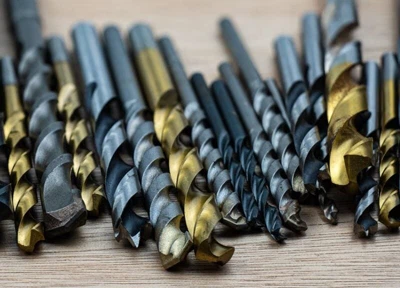
2.Warranty: Snap-On's warranty typically covers defects in workmanship or materials that prevent the tool from being used at the time of sale. Consumable items like drill bits are not covered under Snap-On's lifetime warranty.
3.Performance: While Snap-On drill bits are known for their high quality and durability, using drill bits from other reputable brands should not significantly impact the performance of your Snap-On drill, as long as the bits are of good quality and suitable for the material you are drilling.
can i use regular drill bit for brick
You can use a regular drill bit for brick, but it is not recommended. Regular drill bits are not designed for the hardness of brick and will likely dull quickly or break.For best results, you should use a masonry bit, which is specifically designed for drilling into hard materials like brick.
Why Masonry Bits are Better
Material: Masonry bits typically have carbide or tungsten carbide tips that are much harder than the steel used in regular drill bits. This allows them to easily drill through tough materials like brick.
Design: Masonry bits often have a conical or triangular shape at the tip, which helps them penetrate hard materials more effectively.
Flute Design: Masonry bits usually have deeper, wider flutes to help remove debris while drilling, preventing clogging and ensuring smooth drilling.
Using a Regular Drill Bit on Brick
If you must use a regular drill bit, follow these precautions:
1.Choose the Right Bit: Use a high-speed steel (HSS) bit, as it is more durable than standard steel bits.
2.Start Slow: Begin drilling at a low speed to prevent the bit from slipping and to reduce heat buildup.
3.Apply Gentle Pressure: Let the drill bit do the work. Applying too much pressure can cause the bit to break or the drill to overheat.
4.Clear Debris: Periodically withdraw the bit to clear out debris and prevent overheating.
5.Safety Gear: Always wear safety goggles and a dust mask to protect yourself from flying debris and dust.
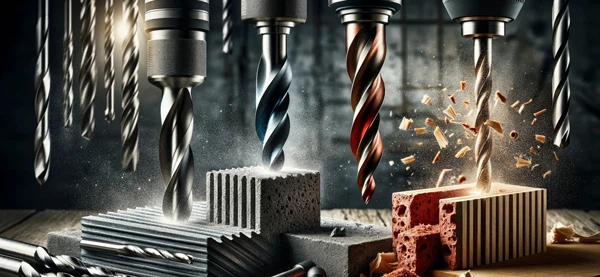
Recommended Tools for Drilling Brick
Hammer Drill: A hammer drill is highly recommended for drilling into brick. The hammering action helps break through the hard surface more efficiently.
Masonry Bits: Use masonry bits with carbide tips for durability and precision.
can you buy individual drill bits
You can purchase individual drill bits from a variety of sources. Here are some options:
Online Retailers
The Home Depot: Offers a wide range of individual drill bits from different brands. You can shop online and choose to pick up in-store or have them shipped to your address.
Lowe's: Provides a selection of individual drill bits suitable for various materials and applications. You can find bits for wood, metal, tile, and more.
Walmart: Sells a variety of drill bits in different sizes and types. You can find both individual bits and sets to suit your needs.
Drill Bit Warehouse: A specialized online store offering high-quality drill bits. They provide individual bits as well as sets, with options for customization.
Physical Stores
Home Improvement Centers: Stores like Home Depot and Lowe's have dedicated sections for drill bits where you can find individual bits in various sizes and types.
Hardware Stores: Local hardware stores often carry a good selection of drill bits. You can find bits for different materials and applications.
Specialty Tool Stores: These stores cater to professionals and enthusiasts in the construction or woodworking industry. They offer a wide range of high-quality drill bits, including specialized options for specific materials.
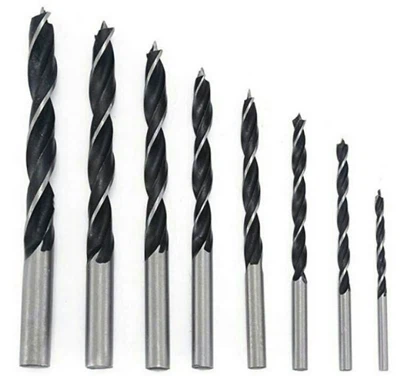
Manufacturer Websites
Direct Purchase: Many reputable drill bit manufacturers have their own online stores where you can purchase individual drill bits directly. This ensures you get authentic products and may offer exclusive deals.
do all drill bits fit any drill
Not all drill bits fit any drill. The compatibility of drill bits with drills depends on several factors, including the shank size and shape, the type of chuck on the drill, and the material you are drilling. Here's a detailed explanation:
Shank Size and Shape
Shank Size: Drill bits come in different shank sizes, such as 1/4-inch, 3/8-inch, and 1/2-inch. The shank size must match the chuck size of your drill. For example, a drill with a 3/8-inch chuck can only accommodate bits with a 3/8-inch shank.
Shank Shape: Common shank shapes include round shanks and hex shanks. Round shanks fit into standard three-jaw chucks, while hex shanks are designed for quick-change chucks or impact drivers.
Chuck Type
Keyless Chucks: Most modern drills come with keyless chucks, which allow for easy and quick bit changes without additional tools. These chucks can accommodate a wide range of standard shank sizes.
Keyed Chucks: Some drills, especially older models, have keyed chucks that require a chuck key to tighten or loosen the bit. These chucks can be less convenient but offer a more secure grip.
Material Compatibility
Different drill bits are designed for specific materials:
Wood: Twist bits, brad point bits, and spade bits are commonly used for drilling into wood.
Metal: High-speed steel (HSS) or cobalt bits are suitable for drilling into metal.
Masonry: Masonry bits with carbide tips are designed for drilling into concrete, brick, and stone.
Tiles and Glass: Diamond-tipped bits are used for drilling holes in ceramic tiles and glass.
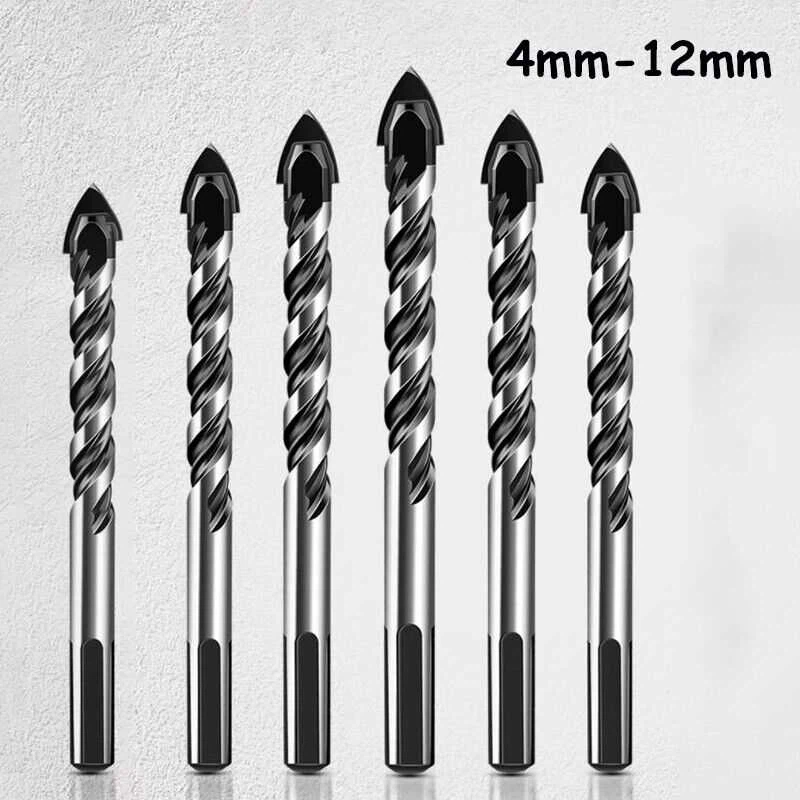
Specialized Bits
Some drill bits are designed for specific tasks and may not fit standard drills:
Hole Saws: These bits require a specific adapter or chuck to fit into a drill.
Multi-Function Bits: Bits with unique designs, such as built-in driver heads, may not fit standard drills and require specific adapters.
Brand Compatibility
While most drill bits are universal in terms of shank size and shape, some specialized bits from specific brands may not be compatible with all drills. Always check the specifications of the drill bit and the drill to ensure compatibility.
do diamond drill bits have diamonds
Diamond drill bits do have diamonds. These drill bits are coated with industrial-grade diamond particles, which provide exceptional hardness and durability. The diamond coating allows the bit to cut through very hard materials like glass, ceramic, porcelain, and stone with ease. Here's a detailed look at how diamond drill bits work and their key features:
Key Features of Diamond Drill Bits
1.Diamond Coating:
Material: Industrial-grade diamond particles are embedded into the bit's surface. This coating provides extreme hardness and durability.
Application: The diamond coating is particularly effective for drilling into hard, brittle materials like glass, ceramic, and stone.
2.Design:
Conical Shape: Many diamond drill bits have a conical shape with a pointed tip, making them ideal for creating precise, conical holes.
Flute Design: The bits often have flutes designed to remove debris efficiently, ensuring smooth drilling and preventing clogging.
3.Usage:
Glass and Ceramic: Ideal for drilling holes in glass, ceramic tiles, and porcelain.
Stone: Effective for drilling into natural stone like marble, granite, and limestone.
Plastic: Can also be used for drilling precise holes in plastic materials.
How Diamond Drill Bits Work
Cutting Action: The diamond particles on the bit's surface cut through the material as the bit rotates. The hardness of the diamonds allows them to penetrate even the toughest materials.
Cooling: To prevent overheating and extend the life of the bit, it is often necessary to cool the bit with water during drilling. This helps remove heat and debris, ensuring a clean, precise hole.
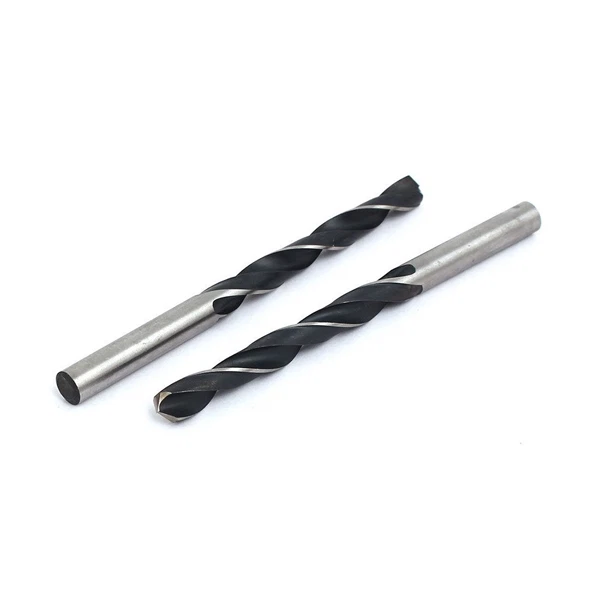
Tips for Using Diamond Drill Bits
Secure the Material: Clamp the material to prevent it from moving while drilling.
Mark the Spot: Use a marker or center punch to mark the exact spot where you want to drill the hole.
Start Slow: Begin drilling at a slow speed to ensure the bit starts cutting smoothly. Apply gentle pressure to avoid damaging the material.
Cool the Bit: Periodically dip the bit in water or use a spray bottle to keep it cool during drilling.
Clear Debris: Regularly retract the bit to clear out chips and debris, especially when drilling deeper holes.
Safety Precautions
Wear Protective Gear: Always wear safety goggles and gloves to protect yourself from flying debris and sharp edges.
Work in a Well-Ventilated Area: This helps avoid inhaling any dust or fumes generated during drilling.
do drill bit sharpeners work
Drill bit sharpeners do work and can be very effective at restoring dull drill bits. They help maintain the sharpness of drill bits, ensuring precision and efficiency in drilling operations. Here are some key points about their effectiveness:
How Drill Bit Sharpeners Work
Drill bit sharpeners use grinding wheels or other sharpening elements to restore the cutting edges of dull drill bits. They can handle various types of drill bits, including high-speed steel (HSS), cobalt, and carbide bits. The process involves inserting the bit into the sharpener and pressing it against the grinding wheel, which removes material to restore the bit's sharpness.
Effectiveness and Benefits
Restores Sharpness: Drill bit sharpeners can effectively restore the cutting edges of dull bits, improving their performance.
Extends Bit Life: By sharpening bits, you can extend their lifespan, saving money on replacements.
Versatility: Many sharpeners can handle a wide range of bit sizes and materials, making them suitable for various applications.
Ease of Use: Modern sharpeners are designed to be user-friendly, with features like pre-calibrated settings and easy-to-follow instructions.
Choosing the Right Sharpener
Drill Doctor 500X: This sharpener is highly recommended for its versatility and ease of use. It can handle bits from 3/32" to 1/2" and offers adjustable angles (118° or 135°), making it suitable for a variety of bits.
Drill Doctor 350X: A budget-friendly option that works well for standard twist and masonry bits. It is compact and easy to use, making it a good choice for home workshops.
Vevor MR-13B: This sharpener offers more advanced features, including adjustable angles and the ability to sharpen bits up to 13mm in diameter. It is more durable and suitable for professional use.
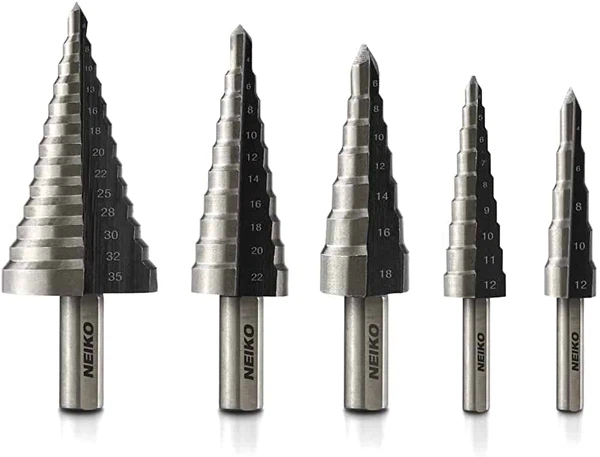
Tips for Using a Drill Bit Sharpener
Follow Instructions: Always follow the manufacturer's instructions for the best results.
Maintain Consistent Angles: Ensure the bit is sharpened at the correct angle for its intended use (e.g., 118° for general-purpose bits, 135° for harder materials).
Regular Maintenance: Regularly sharpen your bits to maintain their performance and longevity.
do drill bits come with drill
Drill bits typically do not come included with a drill when you purchase the drill itself. However, there are several scenarios where you might receive drill bits along with a drill:
1. Starter Kits
Some manufacturers offer starter kits that include a basic drill along with a small set of drill bits. These kits are designed for beginners or for those who need a basic setup for general use. The included bits are usually standard sizes suitable for common tasks.
2. Special Promotions
Occasionally, manufacturers or retailers may run promotions where they bundle a drill with a set of drill bits. These promotions are often limited-time offers and can be found during sales events or as part of a special package deal.
3. Tool Sets
Some tool sets include a drill along with a variety of accessories, including drill bits. These sets are designed to provide a comprehensive toolkit for specific tasks, such as woodworking, metalworking, or home improvement projects.
4. Replacement Bits
If you purchase a drill and later need additional bits, you can buy them separately. Many manufacturers offer individual bits or sets of bits that are compatible with their drills. These bits come in various sizes and types to suit different materials and applications.
5. Online Retailers
Online retailers like Amazon, Home Depot, and Lowe's often offer drills and drill bits separately. However, you can also find bundled kits that include a drill and a set of bits. These kits can be a convenient option if you need a complete setup for a specific project.
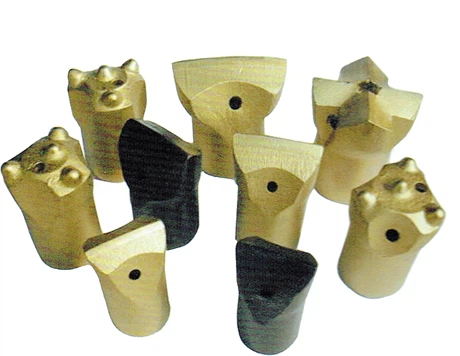
Tips for Purchasing Drill Bits
Match the Bit to the Drill: Ensure the drill bits you purchase are compatible with your drill. Check the shank size (e.g., 1/4 inch, 3/8 inch, 1/2 inch) to ensure a proper fit.
Consider the Material: Choose drill bits made from materials suitable for the tasks you plan to perform. For example, high-speed steel (HSS) bits are versatile for general use, while carbide bits are better for drilling into hard materials like concrete.
Check the Set: If you are purchasing a set of drill bits, check the included sizes to ensure they meet your needs. Many sets come with a range of sizes suitable for various applications.













